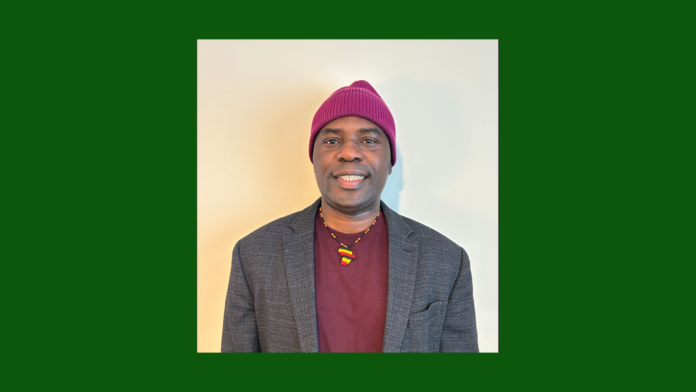

The City of Fredericton proclaimed March 21 as its first Anti-Racism Day following their 2023 Anti-Racism Task Force (ARTFF) final report.
Among the recommendations highlighted by the ARTFF, they pointed out the need for the city to recognize and promote the UN International Day for the Elimination of Racial Discrimination and hire a new employee to track and report incidents of racism.
“It’s a good step for the City of Fredericton to want to start hosting an Anti-Racism Day here. To be frank, I don’t think I would call it an Anti-Racism Day but more of like a cultural inclusion event,” said Saa Andrew Gbongbor, cultural diversity coordinator at St. Thomas University.
The first Anti-Racism Day was celebrated with an Inclusion in Action symposium, which was a “platform for organizations big and small to share successes, challenges and lessons learned from the implementation of Diversity, Equity and Inclusion (DEI) initiatives.”
“’I’m happy that they’re having more fun with these inclusion events and it’s good for diverse voices to be on the table, come together and talk about our challenges,” said Gbongbor.
Gbongbor, who came to Canada as a refugee from Sierra Leone in 2004, said that he has seen how the community of Fredericton has become more diverse throughout the years.
“[The Anti-Racism Day] will create more inclusivity in our community, but at the same time, we have to start looking beyond awareness, we have to start to talk about actions,” he said.
Gbongbor said that Fredericton needs more representation from different communities in the decision-making to “tackle the barriers together to make the Fredericton we want to see.”
“There’s anti-Black racism here, [Islamophobia], racism against transgenders and people of minorities. You know what I mean? It’s hard to see people of colour or with disability in positions of power,” said Gbongbor.
“When we’re talking about barriers, let’s name them because if we don’t name them, we can’t solve them.”
Emmanuelle Jackson, a third-year student at STU and president of STU’s Black Students’ Association, said even though this is a step in the right direction “our government tends to make these days and not do anything else other than that.”
“I’ve gotten to see over the years what the government has done to combat racism and other forms of bigotry and I will say they haven’t done the best job at that,” said Jackson.
“You can make all the days that you want, but if you’re not doing something action forward, then what’s the point?”
Similar to Gbongbor, Jackson said that the best initiative to address racial discrimination in all forms is to recognize that “there is an issue in the city.”
According to the Systematic Racism Commissioner’s final report, released in 2022, “many New Brunswickers lack a clear understanding of systemic racism” and “the vast majority of political and industry leaders do not understand how systemic racism impacts their work.”
“I’m both Indigenous and Black, I have had people question my identity and how I identify and I’ve seen people talk about that in awful ways and make stereotypes about them and that is rough to see,” said Jackson.
